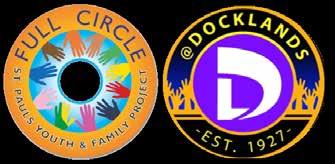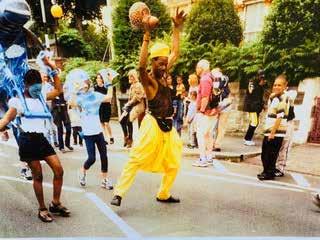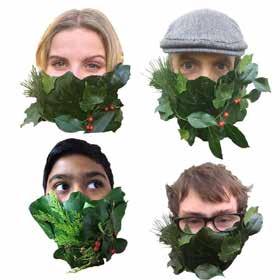
4 minute read
Fencing is for Everybody
from issue 17
It’s been an epic day. I’m somewhat exhausted, yet somewhat elated as I go to speak to another community stalwart and dedicated youth worker Stephen Findlay who has been tutoring young people in the art of Fencing. For this next report, I’ve interviewed two of the young people who are engaged in this discipline, Ms Ayah Yaqub and Mr Ashley Brown.
Introduce yourself and tell us why do you like Fencing?
Advertisement
Ayah: “ Hi. My name is Ayah Yaqub and I am 7 years old. I like fencing cause it’s fun and exciting, plus I’m learning skills. And if somebody tries to hurt me I will be able to defend myself. I enjoy going to the tournaments because if you do well you can win medals and at the end, they sometimes give us sweets. I’ve won two medals and a golden shield. I remember the first tournament I competed in, I came first; (pointing at her father), my dad did not film it because we did not know that I was going to be first. And that’s where I won my golden shield.” Ashley: “ I am Ashley Brown and I’m 11 years old. I like fencing because we get to use sword things and I can become good at it. The thing I enjoyed most is beating my friends. I enjoy tournaments, but my age group is really tough. I don’t win that much and am sometimes saddened by it, but I want to get better.”
If you were to invite more children to join Fencing, what would you tell them?
Ayah: “ I invited some of my friends to join and told them that it was fun and told them that they could use swords, cause they love using swords. And they came and we had a lot of fun. I would say the same to other girls too. Fencing is my number one sport and my second favourite is Tennis. I love Fencing and want to keep doing it forever.” Ashley: “ I would tell them if they could beat me or compete with Stephen then they could win medals and treats at tournaments. And then say, (in a deep voice) It’s Wednesday my dudes!” as he and Ayah walk off giggling, readying themselves for their next sparring session. (Stephen joins me smiling)
Introduce yourself and tell us about Fencing.
Stephen: “ My name is Stephen Findlay. My colleague, Jimmy Taylor and I started teaching at the club about three years ago after receiving some lessons from a Fencing coach, John Rhodes. He came to teach us some tactics and general practice so that we could pass it on to other people in the community and broader area. We are known as Inner City Fencing and are doing our sessions in Docklands Youth Project. The main club we are affiliated to is White Eagle Fencing Club in Shirehampton. The club are supportive and we are always welcome to attend and practice techniques. We’ve had some success in the short time they have been doing it. Our fencers have done well in internal competitions and an international competition in Wales last year. One of our fencers won gold and another won bronze. They’ve been doing really well in terms of improving their technique and progressing well in competitions. The good thing, it is a discipline just like any other martial art with rules, conventions and guidelines you have to abide by. It also lends itself to being creative because it is not just a black and white thing where one thing follows another and you get a result. It takes thinking, tactics, and movement, looking at what the other person is doing, nuance, counteracting when they are hesitating and judging when to attack and strike. It’s a good discipline to help you develop your cognitive and lateral thinking abilities and to be able to apply that to your life. It will help you work towards goals and to encourage you to keep working at improving in different aspects of your life.”
What is representation and diversity like in fencing locally, nationally and internationally?
Stephen: “ It has become better, but it has been a very elitist sport in the past. It is a very expensive sport to maintain, but has become more accessible over recent years. The equipment and travelling can be quite expense, but we looking at ways to keep growing our sport and supporting our youth.
Diversity is better than what it used to be, as there are people of colour on the British team. At the last Olympics, a Muslim woman was representing the American team and they have a few Black fencers in their team. There are also fencing association in Africa and the Caribbean now who are very competitive on the international front.
International judging panels have also become more representative. We got to just carry it on, get the word out and get more people involved. We must get more people to try and who knows they might even like it.”
So when and how can people join?
Stephen: “ We had to take an enforced break because of Covid and summer holidays, but we are hoping to restart the club early October 2020. Our normal sessions are Wednesdays 4:30pm - 6pm and we hope to maintain this slot back at Docklands Youth Project in Brigstocke Road, St Paul’s.” Me: “ Thank You!” Stephen heads back over to the young fencers under his tutelage and continue instructing them on the finer details of the art form. This has been quite an exhausting and enlightening day as I am left with great admiration and appreciation for these youth workers and young and enthusiastic people I’ve met. We need all the good vibrations we can encourage and generate. That wraps up the sporting section. Next, we look at financial and asset literacy.










